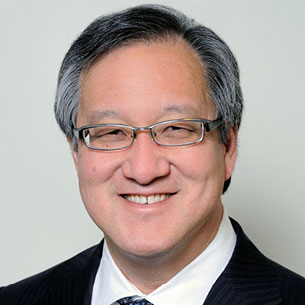PCORI is a quasi-federal agency established by Congress and empowered to promote the use of new research methodologies such as observational research and patient-reported outcomes alongside established methods such as randomized clinical trials to facilitate improvements in health care, which include, but are not limited to, Comparative Effectiveness Research.
Quoting directly from the PCORI mission statement: "The Patient-Centered Outcomes Research Institute (PCORI) helps people make informed healthcare decisions, and improves healthcare delivery and outcomes, by producing and promoting high integrity, evidence-based information that comes from research guided by patients, caregivers and the broader healthcare community."
The workshop raised several critical questions on the nature of PROs. Patient-reported outcomes are in the opinion of many a bit of a misnomer. A more expansive term would be patient-reported data, which allows the inclusion of patient preferences and goals as well as patient data that informs outcomes measures but may not by themselves be outcomes data. And notwithstanding the workshop title, most of the discussion was not about the technical aspects of EHR design, but on the societal purposes and impact on patient care and experiences of PROs.
A central question that emerged early was the difference between research that uses data mining of Big Data from hypothesis-driven research. PCORI seeks to use research driven by computational analysis of large data sets as well as hypothesis-driven research. We, the oncology community, are comfortable with randomized clinical trials (RCTs) as an extension of laboratory-based research and the use of the scientific method. Hypothesis is formulated, data are acquired, and statistical methods are used to test the null hypothesis. Against this is data mining of Big Data where a different perspective on research exists. No hypothesis need be proposed at the outset; the data are allowed to speak for itself. The data are studied to discover correlations, which may inform hypothesis-generated research, but these correlations may themselves be actionable evidence. While this does not inform regulatory approval of new drugs, it is a powerful tool for establishing the value of treatment intervention on health care outcomes and care delivery workflows.
Is Big Data “dirty data”? Are the results less valid because the data were not collected with the rigor and accountability of a RCT? Following the PCORI workshop, I spent the next two days on an Alliance audit team site visit of a major cancer center, reviewing the research data produced as part of NCI RCTs. Typical of these activities, the audit team routinely made countless interpretations of the protocol language and clinical documentation. Coming out of the PCORI workshop, I was unusually sensitive to both the imprecision of collected data even in the context of a RCT, as well as the capriciousness of so many of the rules describing what and how data should be collected. A computational science expert would argue that all data are inherently dirty and imprecise and that clinical trial data is not an exception. Over-manipulation of data in attempt to clean it risks losing the true meaning of that data, and overly narrow collection of data limits the geneneralizability of the data.
PCORI will take a major step forward in redefining the nature of research next month when it announces the grant award recipients that will make up the National Patient Centered Clinical Research Network. This network will have two complementary components. Eight Clinical Data Research Networks will be established, each of which will include at least two independent health care systems, a robust HIT infrastructure, and at least one million patient lives. These Clinical Data Research Networks will not be disease oriented, but be population-based systems. Complementing and working with the provider-based networks will be 18 Patient-Powered Research Networks, which will be disease-oriented. The two networks, one provider-based and the other patient-based, will drive research that reflects their combined interests and goals.
If we are headed towards two research worlds, one that follows clinical trials methodology and another more flexible in approach, which one will better serve personalized medicine and precision medicine? Can traditional clinical trial design accommodate the heterogeneity of molecular-defined diseases and apply hypothesis-driven research fast enough to match the speed of advances in molecular profiling, or will system biology approaches and observational approaches of exceptional responders to therapy better meet the expectation of precision medicine to advance cancer treatment faster? Either way, Louis Pasteur’s quote that chance favors the prepared mind remains sound advice. A prepared mind will learn from all avenues of exploration.


Recent posts